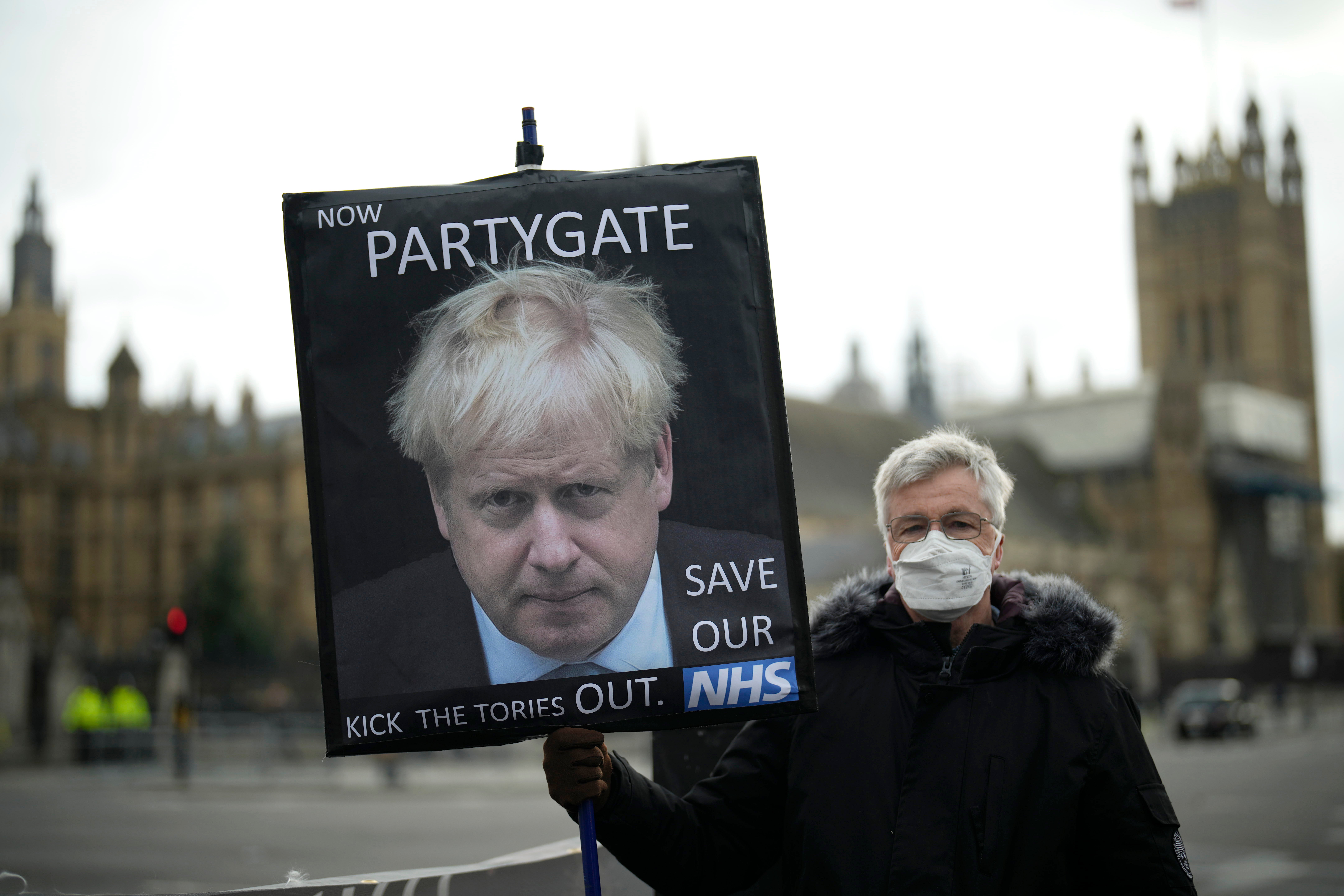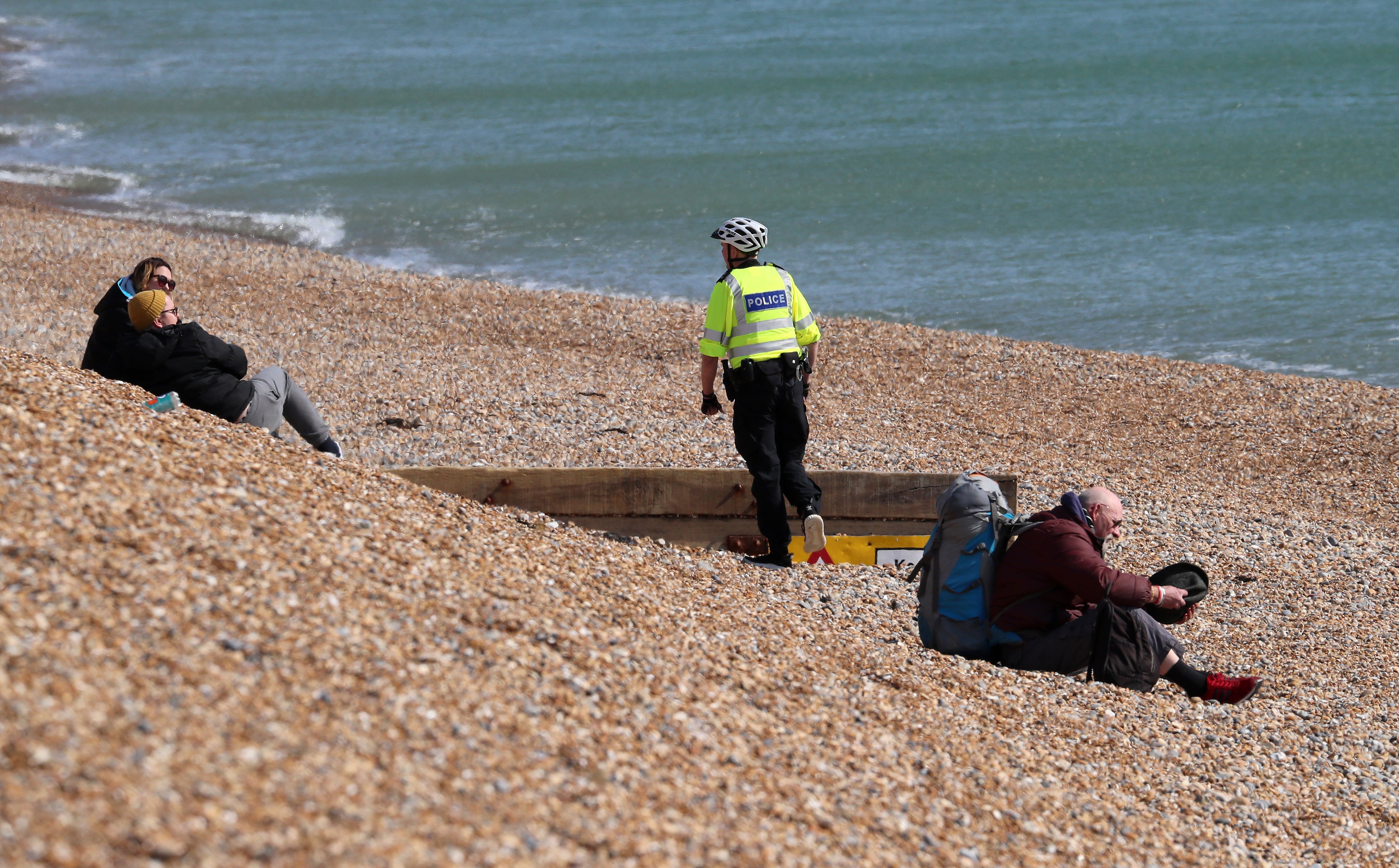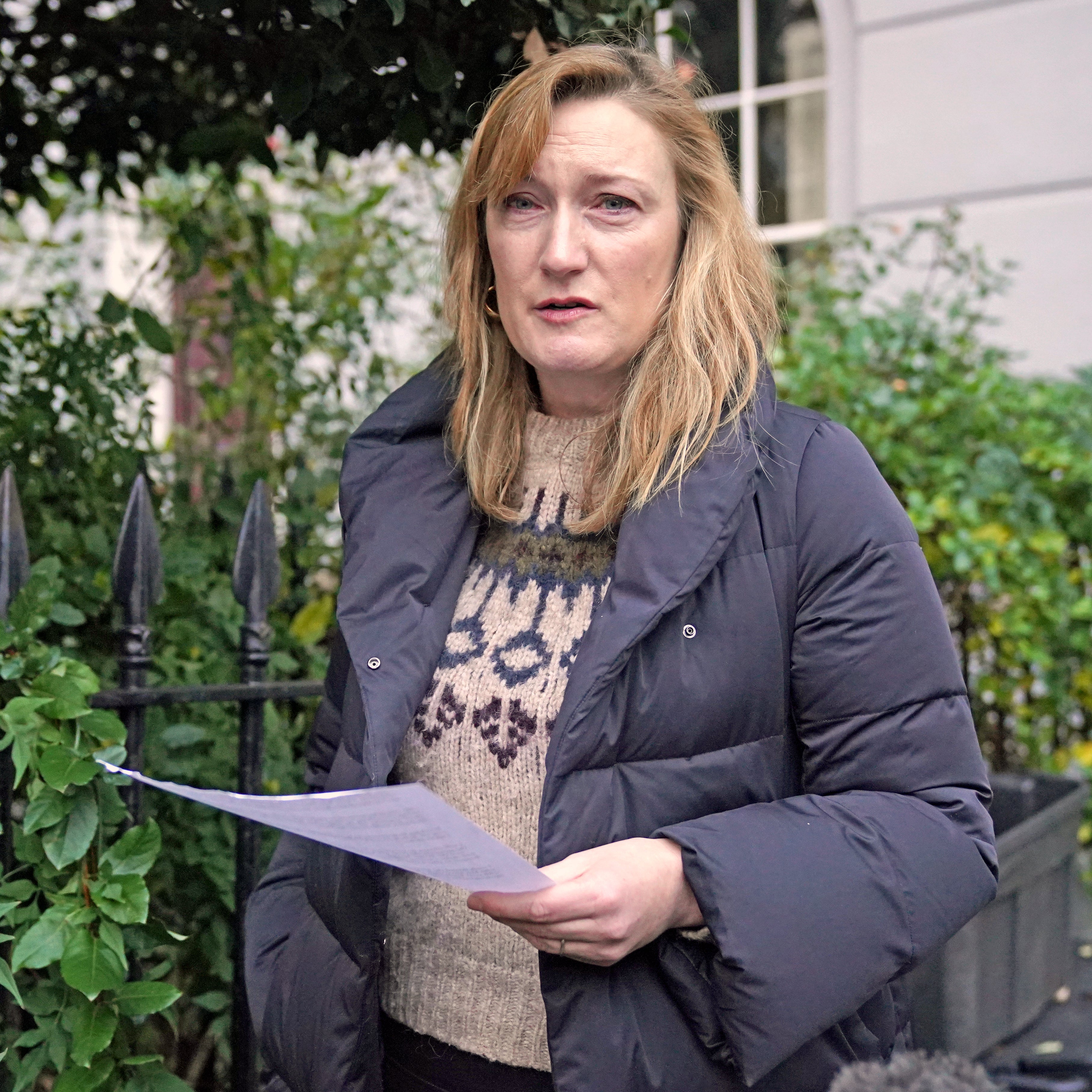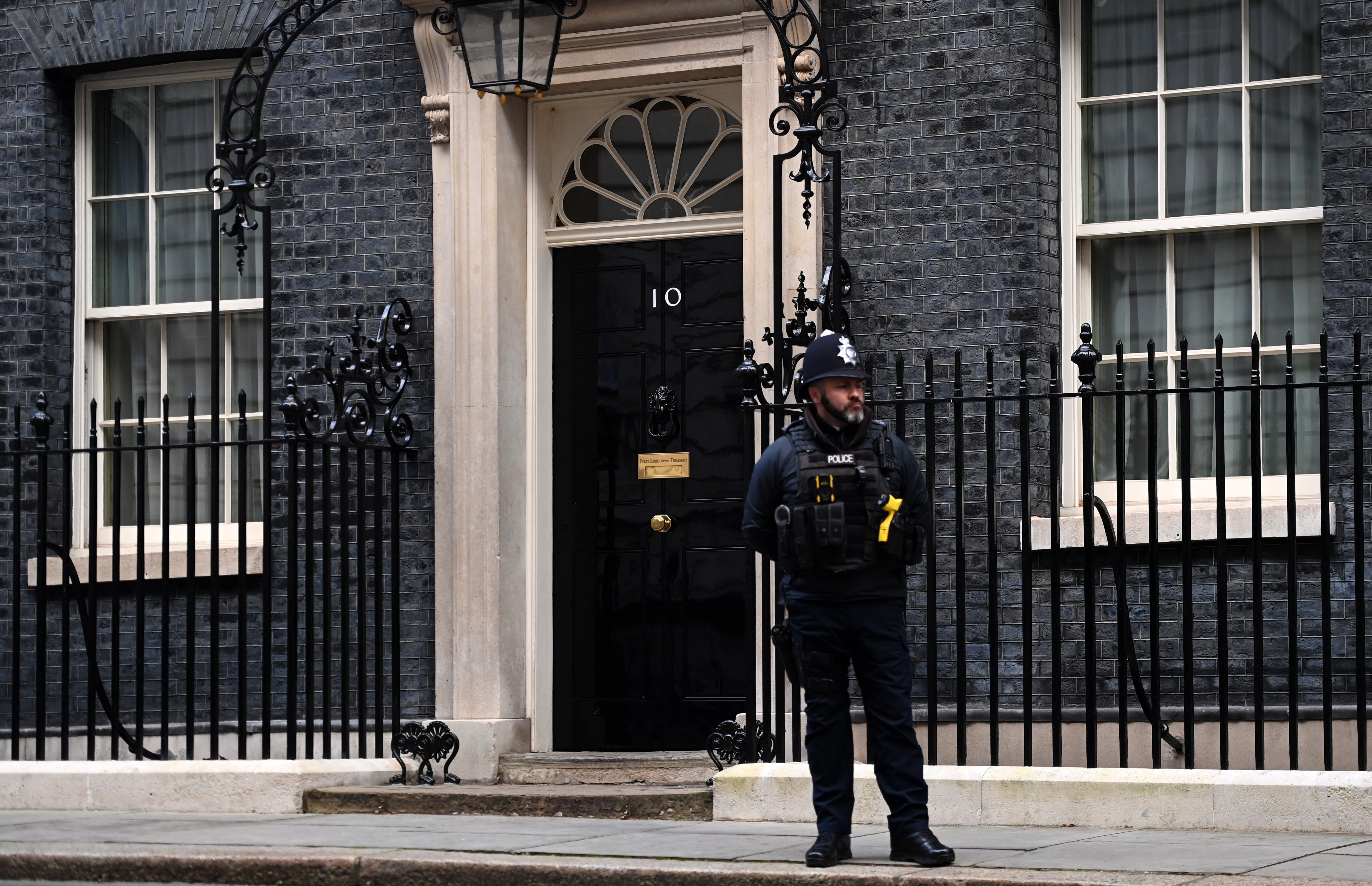Partygate: Have coronavirus fines ever been an effective way to respond to pandemic rule-breaking?
As the Met Police dole out Covid fines in Whitehall, Andy Gregory asks experts about whether these punishments influenced the public’s behaviour during the pandemic


Nearly 120,000 coronavirus fines have been handed out during the pandemic, in the middle of the UK’s worst economic downturn in 300 years. Yet, in the heart of government, flagrant rule-breaking continued, even as the country notched up a staggeringly high death toll.
For many people, the news that an initial 20 fixed penalty notices (FPNs) will be handed to Partygate officials for offences committed within Downing Street and Whitehall may well beg the question – was this ever the right approach to take, and was it an effective way to deal with the pandemic?
While the consequences for Boris Johnson still remain unclear, critics argue that the Covid fine system was clearly a “two-tier” enterprise from the start.
“The fines at the lower end of the scale were ultimately I don’t think a particularly powerful deterrent for people that were minded to break them anyway – they just sorted of priced it in,” said Pippa Woodrow, a barrister at Doughty Street Chambers.
But while those with the means could do the same for the rarer fines of £10,000 imposed on hundreds of people, “for others that simply wasn’t an option, so they faced criminalisation”, Ms Woodrow said, adding: “In many cases that would have been utterly disproportionate.”
In the words of policing minister Kit Malthouse, the system for punishing Covid rule-breaking was “designed to be relatively light touch” – with FPNs favoured as an already-familiar deterrent, to be used primarily as a last resort.

But, according to Ms Woodrow, “it was clear pretty early on from the first few weeks when we started seeing cases being brought in the courts that there was a real problem with these laws”.
“The police didn’t understand them, and they were being implemented badly and then the courts were getting things wrong,” the lawyer alleged.
In a “completely unprecedented move”, the Crown Prosecution Service (CPS) agreed to conduct a rolling review of all coronavirus prosecutions in England and Wales, which it said was to make sure the new laws were being applied consistently and appropriately. “That’s never happened before and it was a sort of sign of how dodgy, how wrong things were looking,” Ms Woodrow said.
As of this February, the CPS review had so far uncovered 803 wrongful prosecutions. This equates to 21 per cent of those reviewed under the Health Protection Regulations, which enforced lockdowns and other restrictions, and every single reviewed conviction under the separate Coronavirus Act.
“We are not aware of any law in history that has an accompanying 100 per cent unlawful prosecution rate,” a group of cross-party MPs and campaigners wrote in a joint letter to justice secretary Dominic Raab in February.
“If, in line with the unlawful rate of prosecutions found by the CPS, 21 per cent of the 118,963 fines recorded in England and Wales were unlawfully issued, this would account for almost 25,000 unlawfully issued fines. This represents serious injustice that must be investigated and remedied.”
One of the major criticisms of the system is its lack of formal appeals process – which critics say has meant that innocent people were forced to pay fines for crimes they did not commit, or risk criminal prosecution and any associated costs and impacts to their employment prospects by refusing them.

From as early as September 2020, parliament’s Joint Committee on Human Rights (JCHR) had warned that the absence of formal process for appealing Covid fines would “invariably lead to injustice”.
By ceding to long-held calls for a more flexible appeals process “which works perfectly coherently in the context of other FPNs”, something which “could have been done easily, quickly, early on”, the government “would have ameliorated an awful lot of this”, according to Ms Woodrow.
“With a parking fine you can appeal it, and if your appeal is unsuccessful, at that point you can decide whether you want to challenge it and have a trial – but there is an initial appeals process,” she said.
“Whereas here, there wasn’t and so it was a sort of coerced settlement – people were coerced into handing over money. In many cases, I’ve had clients who paid the money but definitely were not guilty of any offence, should never have been given the fine in the first place, but couldn’t face the risk of criminal litigation … it was really ill-thought through.”
Ms Woodrow argued that a Covid conviction is treated in a different way to other FPN-worthy offences.
“It’s an offence that, for very understandable reasons, carries moral judgement with it,” she said.
“It’s something that actually you do have to declare to employers,” Ms Woodrow added, recalling a case she worked on involving “students who were kicked out of university purely for having got a fixed penalty notice, let alone having got a conviction”.

Asked whether she believed that those in Downing Street had been given more due process than the rest of the public, Ms Woodrow said: “Undoubtedly.”
While there have been cases involving members of the public where police officers have issued fines following reports of a party, she said, “the idea that you can be given a questionnaire that you can kind of compare with your mates, and the idea that the police have deferred to effectively an internal investigation in order to gather the relevant evidence, it’s just sort of extraordinary, actually”.
“There’s no question that that would have happened for any ordinary civilian, in my view,” Ms Woodrow added.
“I think the way the police have decided to review so thoroughly Partygate allegations but were so freely and kind of quite oppressively in many cases handing out fines like Smarties to ordinary people, it does really create a sense of injustice, a sense of bias – the without fear or favour mantra doesn’t ring true in those circumstances.”

For Stephen Reicher, a behavioural psychologist at the University of St Andrew’s who sits on the government’s SPI-B advisory committee, Partygate showed how politicians failed to “understand the dangers of creating a sense of them and us, of one rule for them and another one for us – and how that would critically undermine authority and undermine trust”.
However, Professor Reicher credited the police with having better grasped the “the importance of establishing relationships of trust”.
He praised the policing guidance during the pandemic, which was built on a framework known as the “four E’s” and which instructed officers dealing with the public to first engage with them, then to explain the public health risks, to encourage voluntary compliance with the rules, and – as a last resort – to enforce them.
Prof Reicher said: “For most people, it’s the opportunity for a policeman to say to somebody, ‘can you wear a mask please?’ If there isn’t a law, then a policeman can’t say that to you. If there is a law, they can say that to you, and that’s pretty effective.
“What they’re trying to do is to avoid – if they’re doing it well – the need to have a fine. If you fine, you’ve failed. You haven’t established a positive relationship.”
Asked whether it could have been better to save Covid fines purely for the most extreme cases, Prof Reicher said: “Yes. Yes, that’s exactly what the police’s four E’s strategy said.”
Research has shown that creating laws was an effective way of ensuring compliance with health protection measures during the pandemic, with mask-wearing rates soaring following the introduction of a legal mandate. In the words of Prof Reicher: “The legislation was a form of messaging. It was saying: ‘this is really important, you’ve got to do this’.”
But the government adviser warned that, “in a way we’ve conflated crime and punishment”, saying: “I think there is a difference between a legal mandate and the emphasis on fines and punishment.”
“The problem about punishment is precisely how it affects the relationship between the public and authority,” he added. “On the whole, we go along with authority, with laws, with rules and so on, because we think that they are there for our own good, because we think that authority is on our side and has produced rules to allow us to live together more effectively.
“And the problem is, once you wave a big stick at people you break that relationship and authority starts being seen as ‘them’ rather than ‘us’.”
He added that this “becomes particularly problematic when you’re asking people to do things which are either difficult or in some cases almost impossible for them to do” – such as self-isolation in the face of financial hardship or ruin.

Prof Reicher argued that the failure to place “enough emphasis on support and protection for people” was “one of the major mistakes” of the pandemic, harmed adherence to health restrictions, and could have reduced resentment towards certain measures, such as local lockdowns.
Threatening people with fines for not complying with rules rather than providing them with sufficient support “breeds resentment or breeds anger, because it is seen as illegitimate, so this stress on fines as opposed to support alienates considerably”, Prof Reicher said.
And not only does the threat of fines “create a wedge between many people and authority”, it also has “paradoxical effects”, Prof Reicher warned – pointing to instances where fear of punishment appears to have caused people not to engage with the Test and Trace system.
Furthermore, the sense that wilful misbehaviour is to blame for rising inflections – as opposed to structural issues impacting on people’s level of exposure to the virus – not only “missed the point”, but served to divide the public and “break up” the sense of community beneficial for voluntary adherence to the rules, Prof Reicher suggested.
“So I think in many ways the emphasis on fines, the way in which the notion was ‘ah well, if it’s legal then we’ve got to make it a matter of fines’, was counterproductive,” he said.
“I wouldn’t necessarily be against particularly egregious instances, I wouldn’t say you would never use it, but I would say that it would be your last resort rather than your first resort and the problem was it was made a first resort. And the one final problem with fines is that once you take them away you send people a signal that ‘this isn’t important anymore’ … I think that’s what’s happening now.”





Join our commenting forum
Join thought-provoking conversations, follow other Independent readers and see their replies
Comments